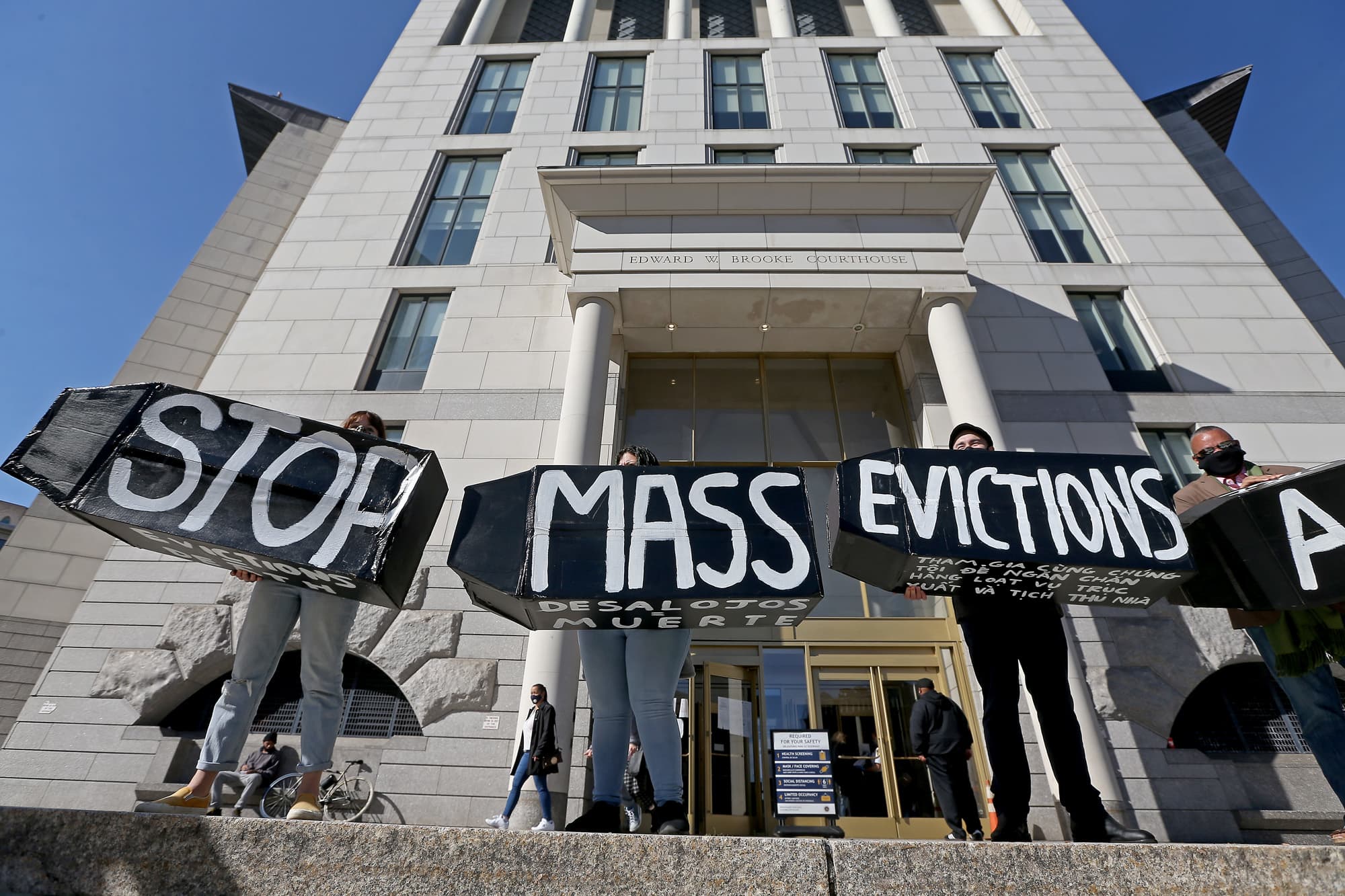Jon Ossoff and David Perdue, candidates for Senate from Georgia.
Reuters; Getty Images
If Democrats achieve a majority in the Senate, a number of relief measures targeted at renters struggling amid the pandemic – including a right to counsel for those facing eviction and a larger pot of money for back rent – will have a better chance of materializing.
It’s already been announced that Rev. Raphael Warnock, a Democrat, won the Georgia U.S. Senate runoff. John Ossoff, the other Democrat in the race, is leading Republican Sen. David Perdue with 98% of the expected vote counted, but NBC said the race remained too close to call. If Ossoff wins, the Senate will be evenly split, giving Democrats control of Congress since Vice President-elect Kamala Harris would be able to make the tie-breaking vote.
After months of negotiations, Democrats and Republicans struck a deal on another stimulus package last month that extended the national eviction ban through January and allocated $25 billion for rental assistance.
That relief was a sliver of what Democrats had pushed for.
One estimate puts the nation’s rental arrears at closer to $70 billion and 1 in 5 adult renters are still behind on their rent after months of record job losses and business shutdowns.Recent research has also found that evictions lead to significantly more coronavirus cases and deaths in an area.
“If they take the Senate, Democrats have a rare opportunity to directly and swiftly end the eviction crisis and prevent severe harm to renters and landlords nationwide,” said Emily Benfer, a visiting law professor at Wake Forest University.
In Democrats’ vision for a stimulus plan laid out in May, called the Heroes Act, and which President-elect Joe Biden suggested he would support, $100 billion would be allocated for rental assistance. Tenants could use that money for up to six months of back rent and late fees. Other renters would get help securing new housing with funds to cover their moving costs or to repair their credit. Yet another $75 billion fund would be established to help homeowners avoid foreclosure.
The package also called for banning evictions nationwide for 12 months.
More from Personal Finance:
Some states start paying $300 unemployment boost while others lag
The Covid relief bill will keep these tax breaks around even longer
Avoid these costly mistakes when rolling over a 401(k) to an IRA
Meanwhile, Vice President-elect Kamala Harris introduced legislation as a senator in July that would ban all evictions and foreclosures for a year. The bill would also give renters who’ve fallen behind 18 months to come up with their missed payments and prohibits rent increases and late fees in the meantime.
Renters facing eviction would also be guaranteed a right to counsel under Harris’s plan, something housing advocates have long called for.
One study in New Orleans found that more than 65% of tenants with no legal representation were evicted, compared with fewer than 15% of those who did have a lawyer in court.
“Unlike most eviction prevention measures, the bill includes AG subpoena and enforcement authority and guarantees tenants the right to legal counsel,” Benfer said of Harris’s plan.
As president, Biden would also be able to help renters via executive action. President Donald Trump, for example, extended the eviction ban that way in August.
